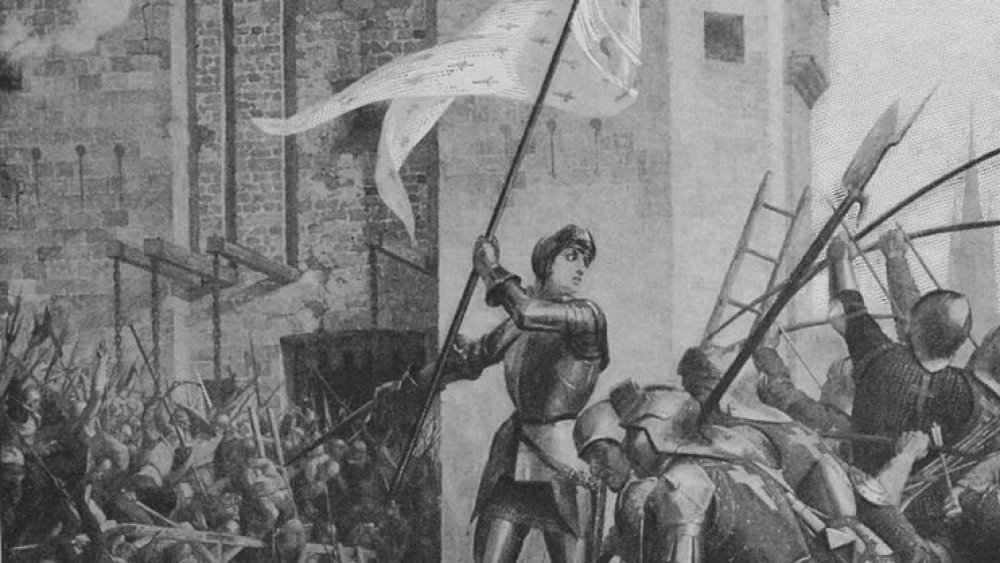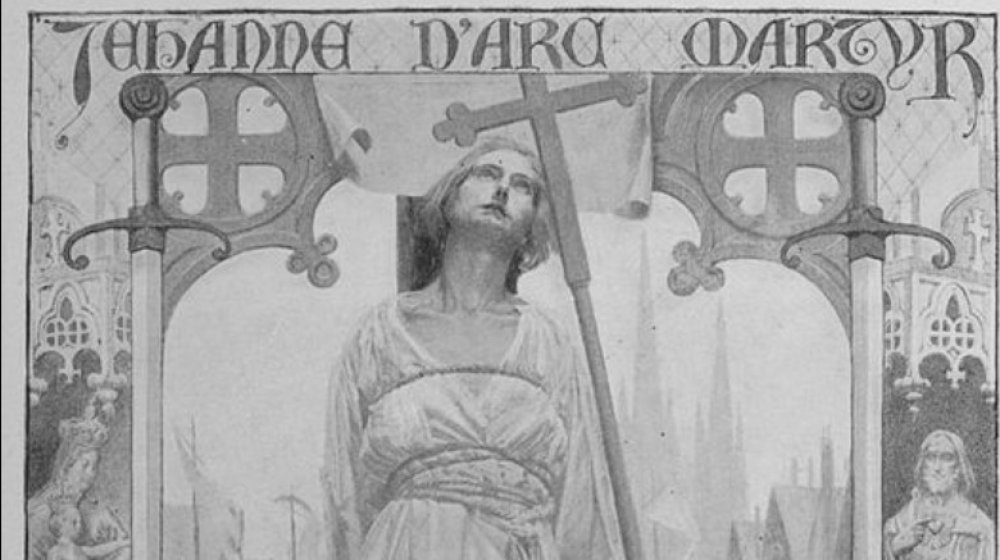The Real Reason Joan Of Arc Was Burned At The Stake
The English have a saying: "a cat may look at a king." Usually it's interpreted to mean that even those of the lowest levels of society have rights. Extend it to France, in the early 15th century, and you have a country girl who can not only look at a king, but speak to him — and he will listen. That's the story of Joan of Arc, a figure of historical record who has continued to inspire for centuries.
Even Mark Twain, a man with, at best, a complicated relationship with religion, was smitten by her, according to Catholic World Report. His Personal Recollections of Joan of Arc was his last full-length novel; in his autobiography, he characterized it as his favorite among all his works — this from the man who gave us Huckleberry Finn — a book that he wrote "for love, not for money."
As History tells us, Joan was born a peasant around 1412 in rural France. There's no record that she was taught to read or write. Huge portions of France were controlled by England as a result of the Hundred Years War. And Joan — Joan had visions. And heard voices, of God and the saints, instructing her to save her country.
Joan was captured and burned at the stake
When she was about 16 she made her way to the stronghold of Charles, the uncrowned King of France. Somehow she earned an audience with him and convinced him that she had been sent by God to liberate France and install Charles on his rightful throne. She also convinced him to give her an army to raise the siege of Orleans. That victory was followed by others, and while there are no reports that Joan ever killed anyone herself, she outlined strategy and inspired the French troops.
It was while leading an attack that Joan was captured by French troops allied with the invaders. She was sold to English authorities. Put on trial, her claims of divine guidance were used against her to accuse her of heresy as well as witchcraft. As History tells us, after a year of imprisonment and constant questioning, 19-year-old Joan was found guilty and sentenced to death by burning at the stake in Rouen, France on May 30, 1431. It would be another 20 years before the English were finally forced out of France. Mark Twain would live long enough to see Joan beatified by the Catholic Church on April 18, 1909. She was canonized a saint the next year, a month after Twain's death.

